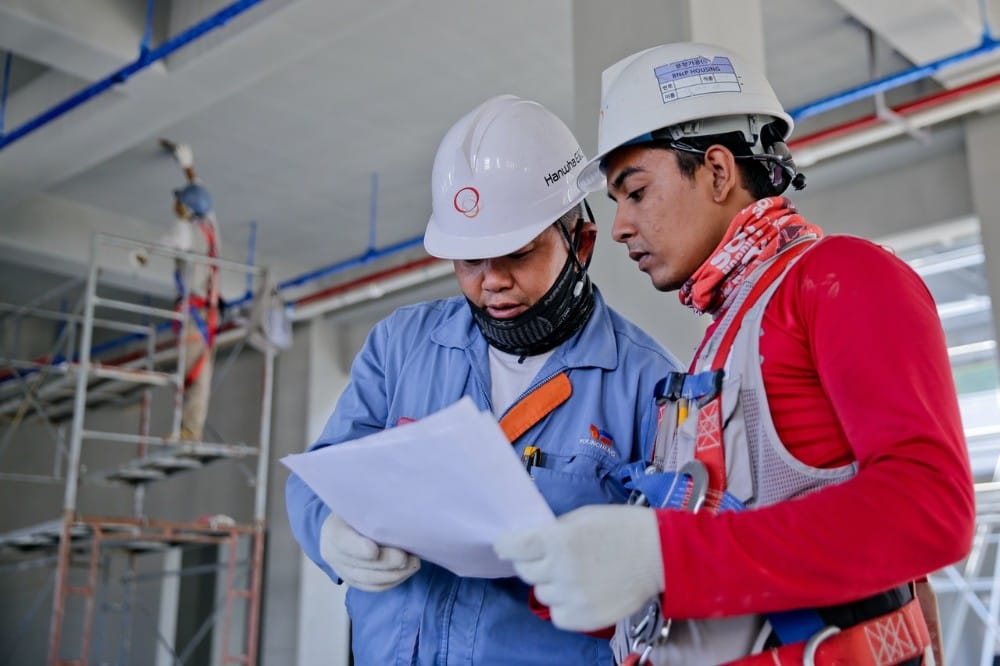Your primary job as an employer is to provide a safe working environment for all your employees, including workers with disabilities. But at the same time, do not forget about other people’s needs.
Specific industries, such as mining or hazardous substances, are covered by separate health and safety regulations. Still, most of the advice below applies to most companies and covers basic safety and health requirements.

High-quality ventilation system
The workplace must be well-ventilated; the ventilation system must operate without interruption and provide fresh, clean air inflow.
Maintaining temperature conditions
It is necessary to maintain a moderate temperature in the working room, at least 16 ° C in strenuous work conditions (unless the law provides for a lower temperature).
If the comfortable temperature cannot be maintained naturally, install heating or cooling systems that do not emit hazardous vapors.
If necessary, provide workers with thermal clothing and places for rest.
Lighting
Whenever possible, position your work areas to be illuminated by natural daylight.
You must provide quality artificial lighting suitable for working conditions. Some fluorescent lamps tend to flicker and are dangerous to install near rotating machinery.
Cleanliness and waste
- Ensure the cleanliness of rooms, furniture, and equipment.
- Keep floors and stairs clean, and make sure they are not slippery.
- Install special containers for waste.
- Clean interior walls and ceilings.
Working space
- The work area should be spacious; do not allow cramped conditions.
- Seating should be comfortable; the workplace must be organized so the employee can quickly and easily leave it in an emergency.
- The work surface must be at a comfortable height.
- The control levers on the equipment should be easily accessible.
Operation of workplaces and equipment
- Perform periodic maintenance and, if necessary, significant repairs.
- Insert safety glasses and mark them to be seen from a distance.
- Install a quality drainage system, if required by the work process.
- In frosty weather, keep the area around the building clean and safe; sprinkle with sand or salt.
- Be sure to place your equipment and furniture safely.
Movement routes
- Keep floors, corridors, and stairs clear; do not force them; hide electrical cables.
- Surfaces must not be slippery. Place good quality anti-fatigue mats whenever needed.
- Provide safe paths for pedestrians and vehicle exits.
- Surfaces must be level with no holes or broken surfaces.
- Ramps and stairs must be equipped with handrails.
- Doors must be secure to pass; for example, revolving doors must be glass, and power doors must have touch-sensitive edges.
Falling
- Installing handrails and barriers is necessary. Installing handrails, guardrail, and barriers is essential in places with a high risk of falling. Places like pits for vehicle inspection should be fenced and covered when unused.
- Transparent doors, gates, walls, and windows must be made of safe materials and shockproof. They should also have warning signs fixed so a person can see them.
- Windows should be designed so that they can be opened and washed safely. They must be designed in such a way as to prevent falling out of them and must be visible when open so that a person does not bump into them.
- Escalators and moving walkways must function safely and be equipped with the necessary devices, such as stop buttons, that are easily recognizable and accessible.
Toilets
You must provide:
- Clean, well-ventilated toilets (preferably separate for men and women).
- Soap and towels (or hand dryer).
- If necessary, unique hygiene products, for example, if the work involves food preparation.
Changing rooms and storage spaces
Install lockers and large wardrobes; equip changing rooms if work clothes are required. Install a dryer for clothes indoors.
Places to rest and eat
Equip employee recreation areas, including unique places for eating. For pregnant women and nursing mothers, creating comfortable and suitable conditions is necessary. Install the hood in the resting regions so non-smokers are pleased if someone smokes nearby.
Install a drinking water cooler and glasses or a drinking water fountain.
Conclusion
All the tips above cover general principles for maintaining a safe workplace and are suitable for any organization. However, each company must also adhere to the required minimum security standards established explicitly by law for a company’s specifics.

